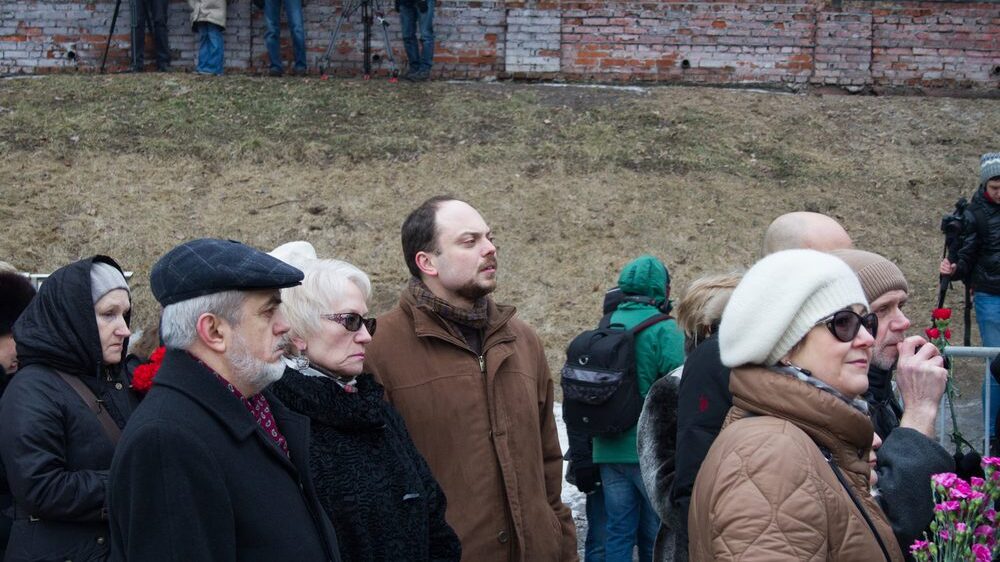
Vladimir Kara-Murza in the queue for the funeral for oppositional politician Boris Nemtsov in 2015.
Photo: KOZYREV OLEG / Shutterstock.com
Vladimir Kara-Murza, a Russian writer known for his opposition to the war in Ukraine, and to the Kremlin leadership more broadly, has been sentenced to 25 years in prison. Russian state-owned media organisation Tass reported that these would be spent in a “maximum security penal colony,” though lawyer Vadim Prokhorov told CNN that the sentence will be appealed.
The ruling relates to charges of treason, spreading “false information” about the Russian Army and leading a “non-grata organisation.” Mr. Kara-Murza, who has also been designated as a “foreign agent” in Russia, was detained one year ago, just hours after branding Vladimir Putin’s leadership a “regime of murderers.” The Duma passed a law imposing a jail term of up to 15 years for spreading “fake” news about the army less than a month into its ‘special military operation’ in Ukraine. Mr. Kara-Murza, who has survived two poisoning attempts, has always been a staunch critic of the Kremlin, even before Russia’s invasion of Ukraine.
Brussels said it “strongly condemns” the sentence, describing it as “yet another demonstration by Russian authorities of the political misuse of [the] judiciary.”
"The European Union strongly condemns the sentencing of Vladimir Kara-Murza.
— European Commission (@EU_Commission) April 17, 2023
This is yet another demonstration by Russian authorities of the political misuse of judiciary.
We call on Russia to immediately release all those imprisoned for politically motivated charges."
UK Foreign Secretary James Cleverly also attacked “Russia’s lack of commitment to protecting fundamental human rights, including freedom of expression.” He urged Moscow “to adhere to its international obligations including Vladimir Kara-Murza’s entitlement to proper healthcare.” Russian Ambassador to the United Kingdom Andrey Kelin dismissed such reactions “as blatant interference into Russia’s domestic affairs, in the court’s verdict, and as an attempt to exert influence on the judicial process.”
The Washington Post, describing the sentence as “one of the harshest sentences since Joseph Stalin’s time,” suggests that
Mr. Kara-Murza should be designated by the United States as unlawfully or wrongfully detained, which will facilitate negotiating a prisoner exchange with Russia.
Mr. Kara-Murza’s wife, Evgenia, said she is “eternally proud” of her husband’s “courage, consistency and honesty in your many years of work.” The prisoner himself added that he was “proud” of his political views, noting his wish “that the day will come when the darkness over our country will dissipate.”
Even today, even in the darkness surrounding us, even sitting in this cage, I love my country and believe in our people … I believe that we can walk this path.
